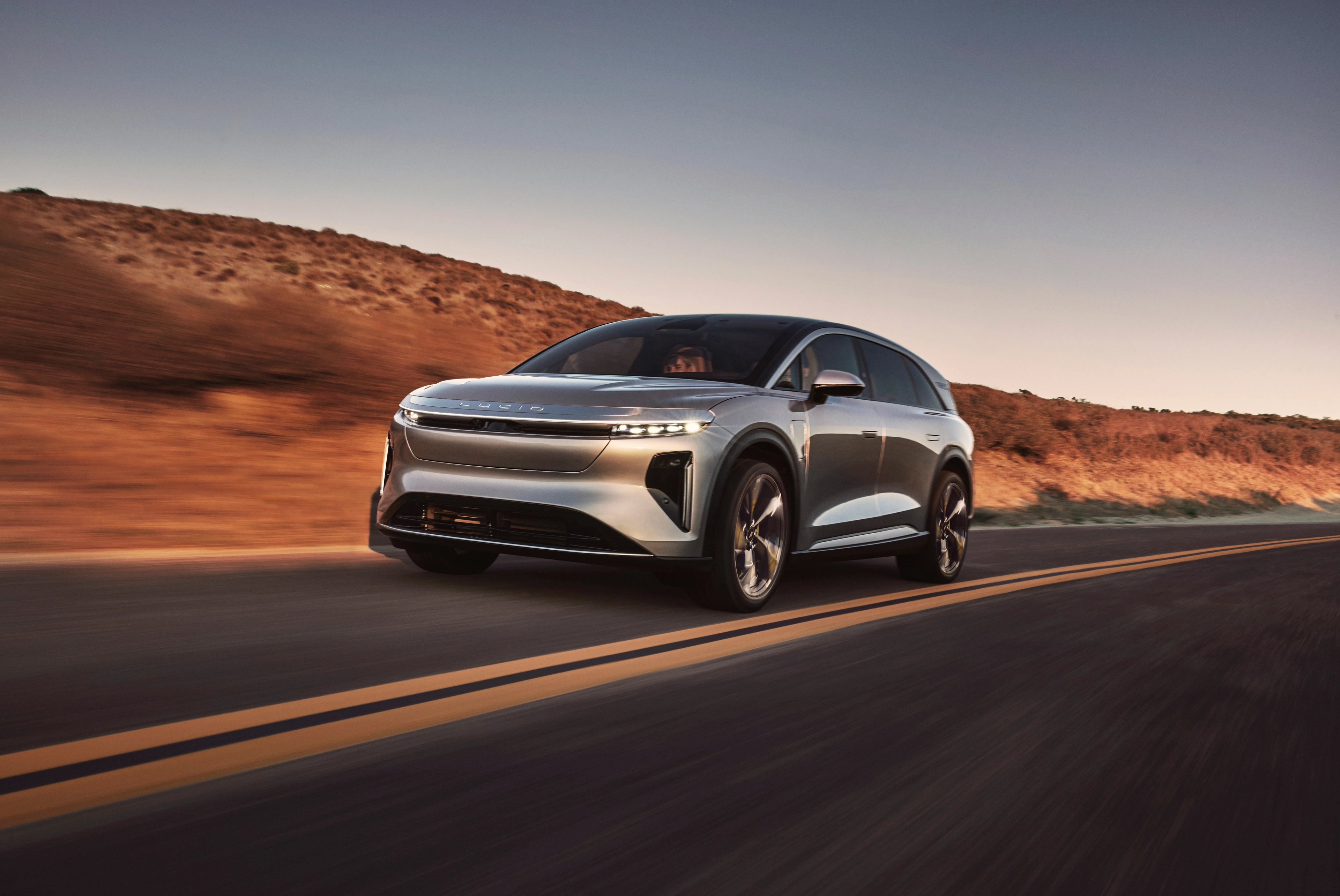The electric vehicle (EV) revolution was supposed to be unstoppable, but the road has gotten bumpier than many investors expected. Many once-promising players have been forced to bow out, but Lucid Group (LCID 1.89%), a favorite of many investors, has managed to stick around despite significant headwinds. So, what might the future hold for the luxury EV maker?

NASDAQ: LCID
Key Data Points
The U.S. market is softening
The macro picture for EVs has changed quite a bit over the past few years. U.S. sales are still growing, but the pace of that growth has slowed significantly. From 2023 to 2024, EV sales grew 40%, but from 2024 to 2025, that was just 10%.
Consumer sentiment has degraded as well. Consumers are increasingly wary of large initial price tags, high repair costs, and a lack of charging infrastructure in many areas. A survey from AAA showed that American attitudes toward EVs are the worst they've been since 2019. Only 16% of respondents said they were likely or very likely to pick an EV as their next car. That's down from 25% just three years ago. Over the same period, the share of respondents who said they were unlikely or very unlikely to do so grew from 51% to 63%.
Things could soon get worse. Right now, President Trump's "Big Beautiful Bill" is working its way through Congress. The Senate is still deliberating on its version, but the House's version, which passed in May, eliminates the EV tax credit that provided up to $7,500 to families purchasing qualified EVs. This, along with rising prices due to automotive tariffs, is likely to further slow domestic EV sales.
Things look different outside the U.S., especially in China. Roughly half of all new car sales last year were EVs, and by now, about one in 10 cars on the road in China are electric, more than twice the share in the U.S. But while the Chinese market is still very strong, Lucid doesn't sell in China at the moment.
Lucid is in the midst of a major rollout
Despite the lack of strength in the overall U.S. market, it's an exciting time for Lucid in many ways. After sales growth flatlined from 2022 to 2023, the company has delivered steady growth for the last year and a half.
This growth is likely to accelerate as the company ramps up the launch of its Gravity SUV, which is already proving to be very successful. Lucid expects to deliver 20,000 total vehicles in 2025, more than twice that of 2024. The majority of these new deliveries will come from its Gravity SUV, while its sedan deliveries are expected to remain flat.
As encouraging as the Gravity launch is, Lucid is still plagued with issues. Aside from the fact that sales of its sedan aren't growing, Lucid loses money on each car it sells -- a lot of money. Last quarter, the company reported $235 million in revenue it earned from delivering 3,109 vehicles. It also reported operational costs of $927 million. That means each car lost the company $222,000, well over the average price of a new Lucid. Even if you exclude sales, marketing, administrative, and R&D expenses, the company is still losing $73,000 on every vehicle it sells.

Image Source: Getty Images
Needless to say, the company has a lot of work to do. Still, these figures are better than they were, and the launch of a new vehicle is always going to be an especially costly time. Though the company needs to work to reduce costs and boost efficiency, which company leadership has assured investors is a top priority, scaling production will help significantly. There are high fixed costs in manufacturing that become less of an issue when more cars are rolling off the line.
Lucid has another revenue stream
Though he's since stepped down, former CEO and CTO Peter Rawlinson said in an interview with an industry publication that he would "love it to be 20-80: Twenty percent doing cars, 80% licensing. Because the vision I have for Lucid is: Just as there's an Intel inside your laptop, there's a Lucid inside a Honda or a Toyota."
Interim CEO Marc Winterhof clarified in the company's latest earnings call that this doesn't mean the company's focus is not on its vehicles first and foremost, but rather that it's a reflection of the size of the licensing opportunity. Lucid has some of the best technology in the business. Its powertrain technology, many of the internal components, and its software are top-of-the-line. Lucid can license this technology to other EV designers and drive revenue growth outside of delivering more cars.
Where will Lucid be in 5 years?
If Lucid executes flawlessly, scales production efficiently, and successfully grows a significant licensing segment, it could emerge as a profitable niche player. However, there are too many hurdles in the way for my taste. The company is burning incredible amounts of cash in a hyper-competitive field, and I think the most likely outcome is that Lucid continues to struggle over the next five years.





